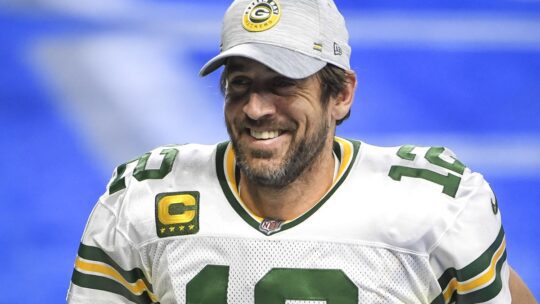
Aaron Rodgers arguably is the best quarterback in the National Football League, but also he is one of many athletes who should attend a PR 101 class.
A basic PR rule that Rodgers broke is never to lie or mislead the media. The Green Bay Packers' star denies he did. Yet, his statements prove otherwise.
The Rodgers incident began Aug. 26. 'Are you vaccinated?' reporters asked the elite athlete. Rodgers told them, "Yeah, I've been immunized.” That left the impression he received FDA-approved COVID-19 vaccinations. "There's guys on the team that haven't been vaccinated. I think it's a personal decision. I'm not going to judge those guys,” he added.
Late last month, several members of the Packers tested positive for coronavirus. Media members later reported Rodgers was among them. 'Is Rodgers vaccinated?' was the obvious next question.
#Packers QB Aaron Rodgers is unvaccinated, per me and @MikeGarafolo. That’s why he’s out for Sunday vs. the #Chiefs.
— Ian Rapoport (@RapSheet) November 3, 2021
'I Did Not Lie'
Confronted last week, Rodgers insists he did not lie in August. He's given various explanations, including fertility fears, for his decision not to be vaccinated. Rodgers says he’s a "critical thinker," doesn't believe in giving in to "woke culture" and decides what is best for his body. The star quarterback says he's received monoclonal antibodies, ivermectin, zinc, vitamin C and D and HCQ. "I feel pretty incredible,” Rodgers adds.
HCQ is the controversial treatment the FDA has warned against, aside from use in hospital settings. [Some believe media has an ethical responsibility to dig into research concerning Rodgers' fertility and other claims.]
Rodgers also says there’s a “witch hunt” in the NFL on players' vaccination status.
"I didn't lie in the initial press conference," he says, adding that teammates knew his vaccination status all season.
But if you read his remarks it’s clear he was not truthful.
“My desire to immunize myself was what was best for my body," he said last week. "I have followed every single protocol to a T, except that one that makes absolutely no sense to me."
NFL protocol requires unvaccinated players to don masks indoors. Rodgers has not.
Regardless of whether or not you think that Rodgers is right or wrong, if he was in a PR class he would have received a failing grade. And his play on semantics already has cost him. A veteran pitchman, already he has lost a long-time endorsement deal, a healthcare provider, as a result of the controversy. Will others follow?
As previously noted, his first mistake was breaking the most important PR rule. He lied to or misled the media. (The choice is yours.)
Next, lashing out against woke culture, witch hunts and the politics of liberals and conservatives inflamed the situation. As a result, he made a sports-page story into a major, multi-day national item.
Here’s what he could have done
To prevent embers from developing into an inferno, Rodgers could have issued a written statement defending his position, thus avoiding at least some follow-up questions from the media.
He could have had the Green Bay Packers' PR department advise him about how best to handle the situation.
Another option: Issue a statement saying he stood by his original comments that he was immunized because he received homeopathic treatment. He could have said his decision to avoid approved COVID-19 vaccinations was a personal choice because he was allergic to a vaccine ingredient. In addition, he could say his choice in no way indicates that he disproves of the vaccines.
He’s already on record saying, “I am not an anti-vax, flat Earther.”
Lessons on selecting a spokesperson
When choosing a spokesperson during a PR crisis, it is important to make certain he/she can remain on script in the face of hostile questions. Unlike Rodgers, an experienced spokesperson avoids making statements that can come back to bite you.
There is no rule that a spokesperson must answer every question. As political spokespersons say often, 'I already answered that question in my initial statement. Next question.'
Likewise, there is no rule requiring a company in a PR crisis to answer media questions during an investigation.
Post Updates Online
Rather than have a spokesperson answer questions, companies in crises should post updates on a website, thus preventing immediate follow-up questions.
Often, despite what self-anointed crisis specialists say, the best strategy during a crisis is to make an initial statement and then stay mute until the situation is resolved. During the silent period, as we noted, the company provides updates on a website.
Unlike certain articles of clothing, there is no one-size-fits-all solution to a PR crisis. Every crisis needs original thinking. In the Rodgers case, saying less would have been the proper advice.
Arthur Solomon is a former journalist and was an SVP/senior counselor at Burson-Marsteller, where sports was among his specialties. He is on the Seoul Peace Prize nominating committee. Contact him: [email protected] or [email protected]
